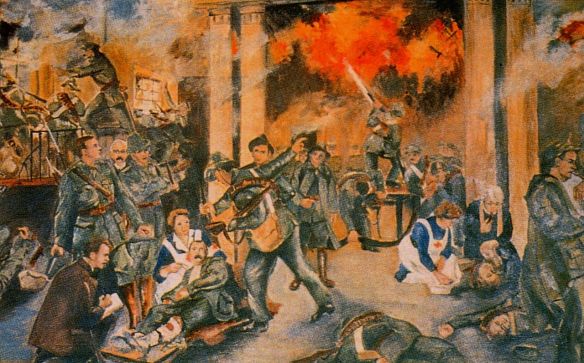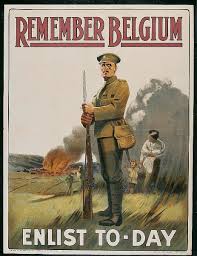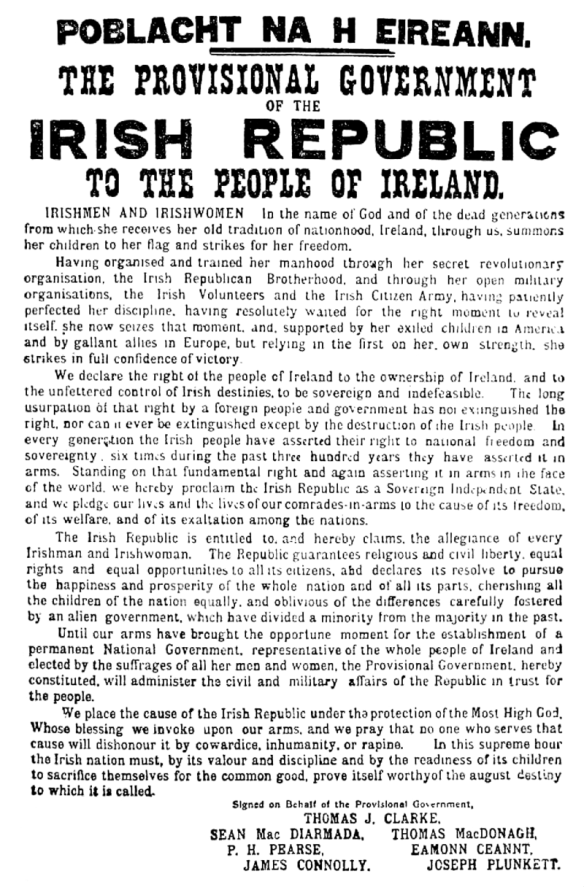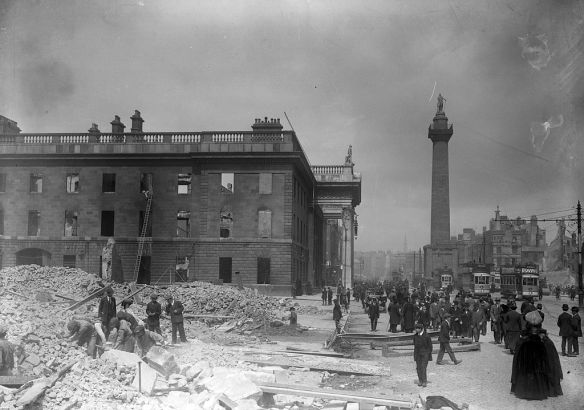
History is a strange thing; people know just enough of it to fight but not enough to understand it. This week I was the observer to a number of conversations that went beyond cringe-worthiness. Two women from different traditions conversed about Easter 1916, what ensued was like a kindergarten history lesson, that included jumbled names, dates, and meanings. I love to debate but it has to be logical and factual. Most are not, people hold to a position without proper knowledge and consideration of opposing stances. Doing so makes holding to a view unwise, as it means you adhere to it without a proper sense of reality. The events surrounding the failed 1916 Rebellion are a case in this. Most will march, or not, due to the social conditioning of their surroundings and influences. Their attitude is projected onto their being, it is not one that has been brought about by a close analysis of events and policies. I will be remembering 1916, after all, it brought about the state of my birth and saved the United Kingdom and the British Commonwealth from a protracted civil war. But in this, I will not be celebrating it as it was a cataphoric event that stunted the growth of the British Isles. Something which we are still suffering the effects of one hundred years later.
On the face of it, Easter 1916, is a blow against an imperial nation holding a subservient people in political chains. This small band would eventually defeat a world power and gain freedom through the shedding of its adherents’ blood. It all seems so simple and heroic but this is not the case and the facts are a lot more complex and sinister. Irish self-determination had already been assured by the efforts of the Irish Parliamentary Party. The anti-imperial argument evaporates in the light of the agreement made by Germany and the rebels to open up another front. The Rebellion and the subsequent Anglo-Irish War brought defeat to the IRA by 1922, both in the North and South; it did not achieve anything that was not going to be put in place by pre-war agreement and its only true achievement was the eternal partition of the island. The Southern State functioned with a British king as head of state and did not become a Republic until 1949.

In 1914, Britain declared war on Germany. The German Kiser wanted his place in the sun and that place was currently held by Belgium. The aggression against its ally forced the British into action. Belgium had been part of the Grand Alliance helping with the defeat of Napoleon. This was to influence the British aristocracy so much, it resulted in catholic emancipation. The fact remains, that while hundreds of thousands of Irish men answered the recruitment poster’s call to defend “poor little Catholic Belgium”, others saw “England’s difficulty as Ireland’s opportunity” and worked with the Kiser to open up a second front in Ireland. The latter being a very small number, 92% of the movement following Redmond in his support of the war effort. As soon as the war was declared, the rump of republicans opened up negotiations with Germany, through Americans based in New York. Roger Casement was shipped off to make arrangements with the Hun.
By February 1916, the Germans had been given the date of the second front opening and despatched the Aud with 25.000 Russian rifles and a million rounds of ammunition. This was caught causing the leadership of the Irish Citizens Army to call off any action. These friendships are manifested in the words of the Proclamation. Stating that the rebellion was “supported by her exiled children in America” and also “by gallant allies in Europe.” This action could not be seen as anything other than high treason, by any state, that was at war. This was most certainly know of and the true objective of the rising was to cause a propaganda backlash. This is why Bulmer Hobson would not take part: that the rising had no military or strategic purpose in seizing public buildings. These would not be defended against a British counter. Hobson was kidnapped by IRB, in order that their plans could be enacted. He would say those involved were “anxious for a demonstration in blood” which only “turned out well” because the English executed the leaders. If this had not have taken place then the affair would have been “a complete fiasco”, in Hobson view.

Despite the execution of the Rising’s leaders, widespread support for Sinn Fein did not take place until 1918. The death of Thomas Ashe, as a result of forced feeding, acted as a propellant for Sinn Fein; this was further added to with the British introduction of the Conscription Act for Ireland. The anti-British feeling was also increased by the arrest of most of Sinn Fein’s leadership, after the uncovering of another German plot in May. By the time of December 1918 election, Sinn Fein had made considerable gains. The election result was more a rejection of British policy than the whole-hearted acceptance of Sinn Fein principle. The casting votes reached just over 900,000 out of an electorate of 1.937,663, with Sinn Fein gaining 476,087. Only one out of four people able to vote, cast in favour of the revolution politic. This was a vote for propaganda more than policy. The Vice-President of the victorious party, Father Michael O’Flanagan, would say that “The people have voted for Sinn Fein. What we have to do now is to explain to them what Sinn Fein is”.
The narrative adhered to by republicans is that a small band of guerrilla forces were able to take on the imperial might of Brittan and win. The evidence for this is totally lacking. The republican forces entered a three-year campaign, that first employed hit and run tactics, and then descended into a terrorist crusade against easy targets, under the guise that they were pro-British, when they could no longer sustain any structure of operations. By 1921, the IRA were running out of weaponry and British tactics had them already defeated. Liam Lynch would state that the “enemy where continual dogging me and often close on my tail.” Liam de Rosite would dependently state “we cannot beat the English forces…this is accepted by even the most sanguine of volunteers.” Things fared even worse in the north where unionist had by the summer of 1922 completely defeated the IRA and the catholic population had rejected them. The IRA commander of Northern Division, Seamus Woods, would state:
The position in No.2 and 3 Brigade of the 3rd Northern Division today is that the Military Organisation is almost destroyed (and the enemy) believe that they have beaten the IRA in Antrim and Down…The people who supported us feel they have been let down by Dail Eirenn, for our position today is more unbearable than it was in June 1921.
He would then go on to state that the vast numbers of nationalist had rejected the IRA campaign:
…Practically all over the Division the Police Barracks are stormed with letters giving all available information against the IRA and their supporters. We have captured some such letters and in most cases suggestions are made to the Police as to how they could best cope with the situation. In most cases they regret they did not give this information two years ago.
The result was, that Home Rule came in its pre-war form but only after the more pragmatic forces used British guns and artillery to pulverise those who waved the green flag and cried republic or nothing. The National forces executed seventy-seven captured anti-treaty guerrillas, declared martial law, and instituted military tribunals. All of which were condemned when the British had used them after 1916. But the irony is lost in the fog of historical myth.

The post-rebellion Ireland was not to gain independence until the twilight of 1937, with the passing of de Valera’s constitution. The spectre of 1916 brought a narrow, religiously, and politically exclusive factor to Irishness, causing mass emigration to the land that Ireland wanted to be free from. This Ireland brought about by the gun, was divided, it became an island that romanticised murder for political ideals, something that still haunts the island’s psyche and looks as it will continue to do so for the foreseeable future. Despite this, people are now openly questioning the legitimacy of what took place a century ago. The real question is whether, Ireland, both British and Irish will finally end a century of death brought about by events by those, of whom, David Norris states were “traitors to the empire” and traitors to their own cause”?

Very informative. A little knowledge is a dangerous thing.